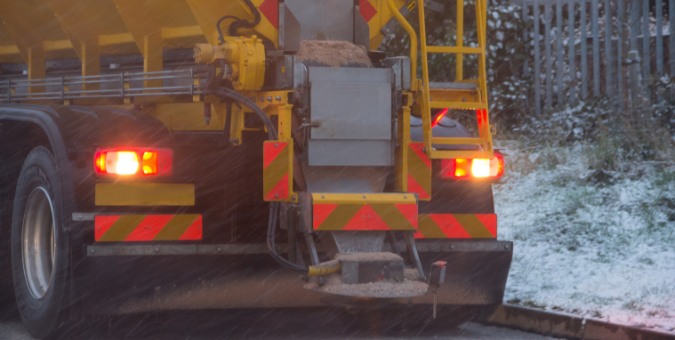
There is concern in some quarters that the current shortage of lorry drivers could lead to a shortfall in the number of drivers available to drive gritters over the winter months.
The Local Government Association has issued a warning that some authorities may find their gritting services are affected by a shortage of drivers. Councils usually deploy bin lorry drivers and contract extra staff during the winter to spread salt on our roads using gritting lorries, but the current shortage of lorry drivers may mean drivers are lured from the public to the private sector by the promise of higher wages, leaving councils short of staff and unable to recruit as they struggle to match the increased wages in the private sector.
Gritting is an essential service during the winter months and helps to ensure the safety of motorists. The responsibility for maintaining the safety of our roads lies with highway authorities. For motorways, this means Highways England, Transport Scotland or the Welsh government. In London the highway authority is Transport London. For all other roads, the local council is usually the highway authority. The highway authorities have a duty to maintain the condition of the roads and keep them safe and passable. This duty includes carrying out repairs, but also extends to keeping the roads free from ice and snow as far as is reasonably practicable.
What if there is a shortage of drivers meaning councils can only provide a limited gritter service?
A lack of gritting would inevitably lead to more accidents on the roads during icy spells, particularly perhaps where a road has historically been gritted and is not therefore on a driver’s radar as being at risk of ice.
If the council has tried and failed to recruit enough drivers, have they done all that is reasonably practicable to keep the roads free from ice? When this issue of what is reasonably practicable was considered by the Courts, it was held that the burden of proof lies on the highway authority to show that they have done all they could. Clearly, the council cannot be expected to grit all roads given their finite resources. It is generally accepted by the public that some roads may not be gritted, generally smaller, quieter routes and if an accident were to occur due to ice on one of these roads, most people would accept that the council may not be liable.
What if you have an accident on an icy road your council should have gritted?
A shortage of drivers could mean busier roads being at risk. Usually, if an accident occurred due to ice on these roads, a claim could be brought against the highway authority for failing to fulfil their duty of maintaining the safety of the road. Unless the authority could show they had recently gritted the road, they would most likely be liable for any damage caused as a result of the resulting accident. Whether they would be able to use the potential driver shortage as justification for a failure to grit some roads remains to be seen. However, given the essential nature of the service and the reliance of the public on the authority to keep traffic moving safely, it seems unlikely that would wash with the Courts.


















